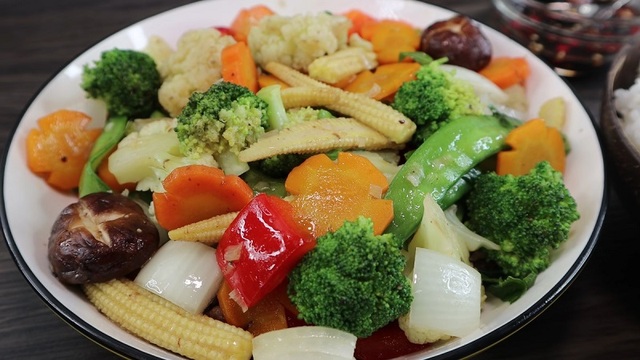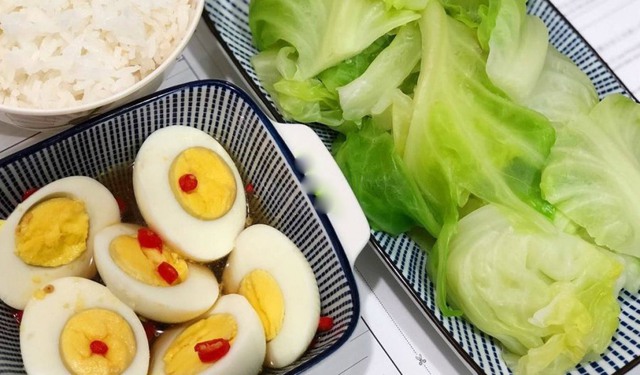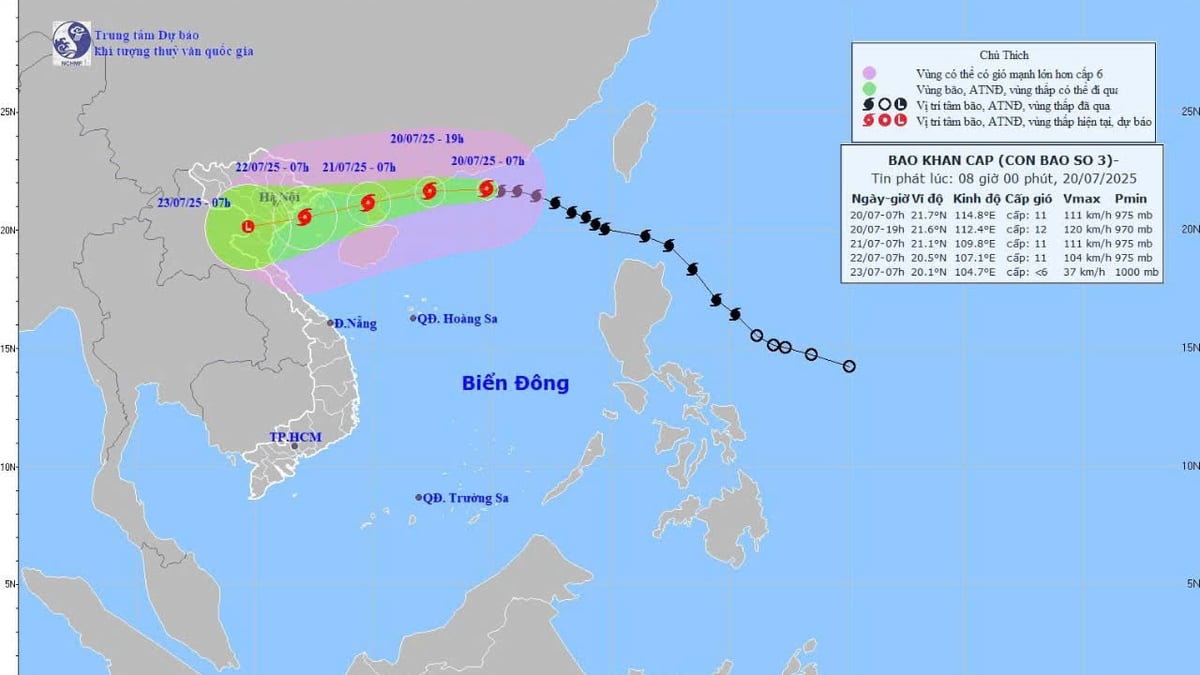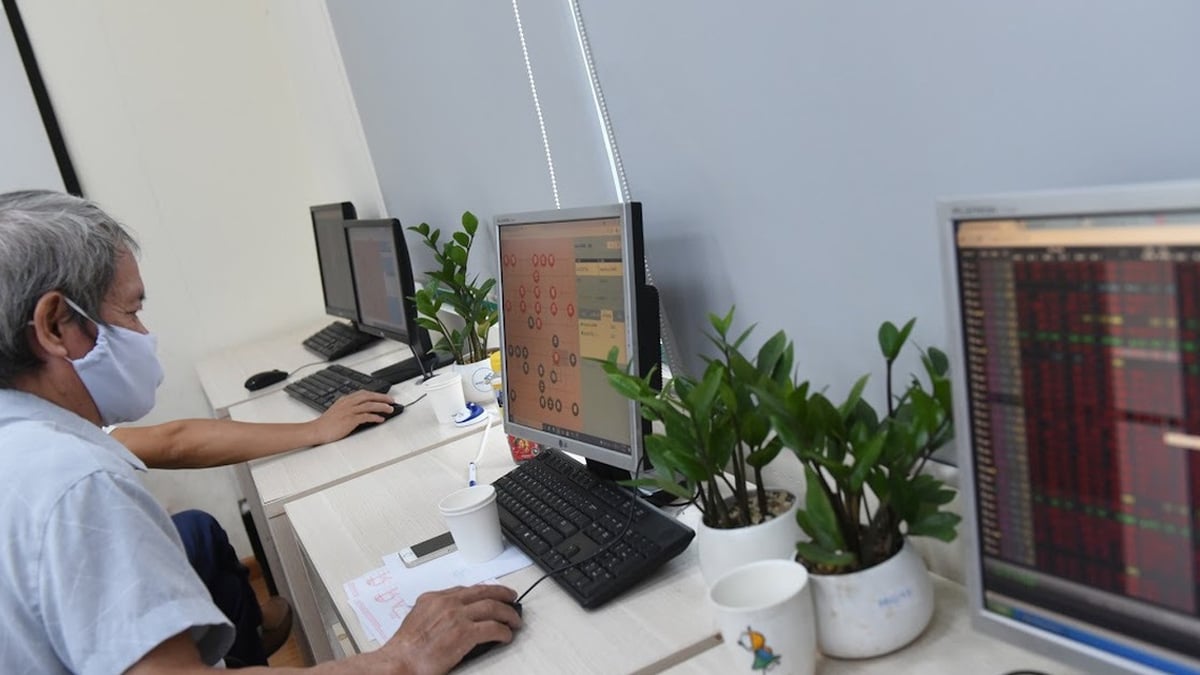Green vegetables play an important role in providing fiber and vitamins to the body. Although this fiber cannot be digested or absorbed, it has the effect of increasing intestinal motility and preventing constipation. This is very important in avoiding the absorption of harmful substances into the body. In addition, fiber also promotes the body's absorption of 3 food groups: protein, fat, and sugar.

Illustration
In addition, vegetables and fruits also contain vitamins and minerals that are essential for the body, helping to prevent infections, cardiovascular diseases and inhibit tumor growth.
According to research, the body needs 400g of vegetables and fruits every day. Nutritionists recommend that each meal should have at least one raw type such as cucumber, tomato... and should eat 2-3 types in a meal.
It should be noted that there are some types of vegetables that are delicious and nutritious, but it is recommended not to eat a lot late at night because it will make it difficult for you to fall asleep. Not only that, it also causes digestive problems such as heartburn, reflux at night...
5 types of vegetables you should not eat much at night
Broccoli
Broccoli is a cruciferous vegetable and is packed with nutrients. However, it contains a sugar called raffinose that is difficult to digest. This can lead to gas and bloating. Eating broccoli late at night can also cause indigestion and interfere with sleep.
Cauliflower
Eating broccoli for dinner and a few hours before bed can be difficult to digest. This is due to the significant fat and calorie content of this food.
Cauliflower also contains substances that stimulate the nervous system and maintain brain activity. At the same time, providing energy makes it difficult for them to sleep and can cause insomnia. Therefore, you should not prepare and use this food in the evening.
Cabbage

Illustration
Cabbage is a very nutritious and versatile vegetable. Eating cabbage for dinner can cause bloating and flatulence due to its high fiber and raffinose content. In addition, eating cabbage for dinner will make it difficult for you to sleep and sleep restlessly. Therefore, you should add cabbage to your breakfast or lunch.
Celery
Celery is one of the vegetables that is not recommended to be eaten before bedtime because it acts as a diuretic. If you eat a lot of celery in the evening, you will risk having to get up to go to the bathroom more often at night, while you are sleeping. This affects the quality of your sleep and makes you sleep poorly, tired the next morning.
Onion
Onions contain fructans, a type of carbohydrate that can cause gas and bloating. They are also high in fiber, which can make the problem worse. If you are prone to bloating, avoid eating onions at dinner.
How to have dinner safely for your whole family

Illustration
- Do not skip dinner: this can easily lead to hypoglycemia, the body will not have strength due to lack of large amount of calories.
- Don't eat too much: eating too much at night makes the digestive system work harder, easily causing indigestion and poor sleep. Not only that, this also increases bacteria in the intestines, which is not good for the digestive system in particular and health in general.
- Do not eat dinner after 9pm: It is best to have dinner between 6pm and 9pm. Do not finish dinner after 10pm because then the digestive system will not function effectively and will pose many potential health risks.
- Avoid eating spicy foods: eating foods with a lot of pepper, chili, ginger, garlic,... in the evening stimulates the appetite but can easily cause stomach discomfort, over time leading to stomach ulcers; rapid heartbeat; constipation;....
- Limit greasy foods and eating too much meat: eating too much greasy foods at dinner can easily cause digestive discomfort, potentially increasing the risk of arteriosclerosis, diabetes, obesity, etc. In addition, eating too much meat at dinner while eating little vegetables will increase the risk of certain cancers and cardiovascular diseases.
Source




































































































Comment (0)